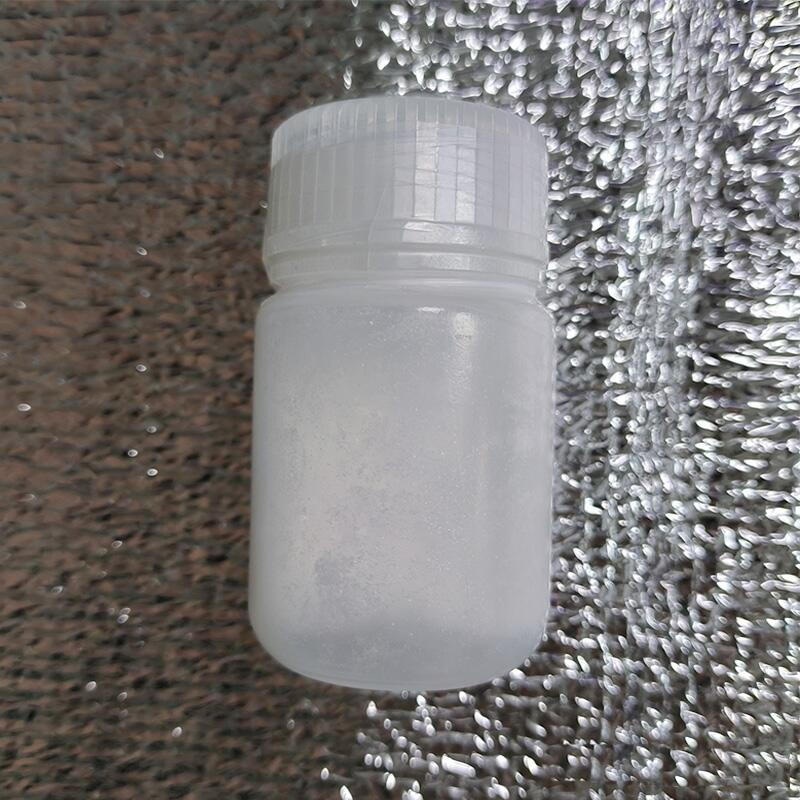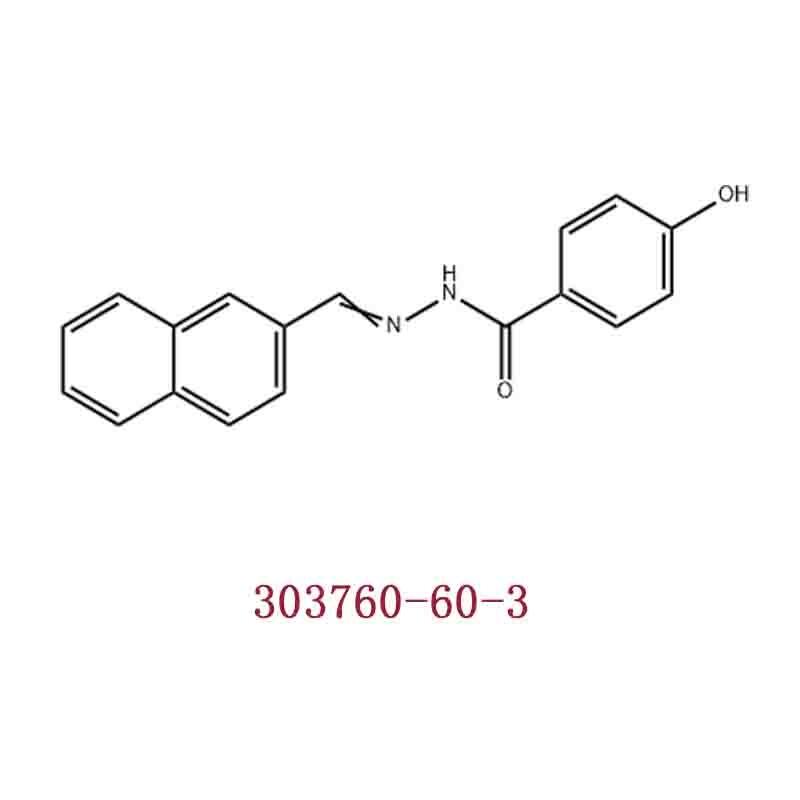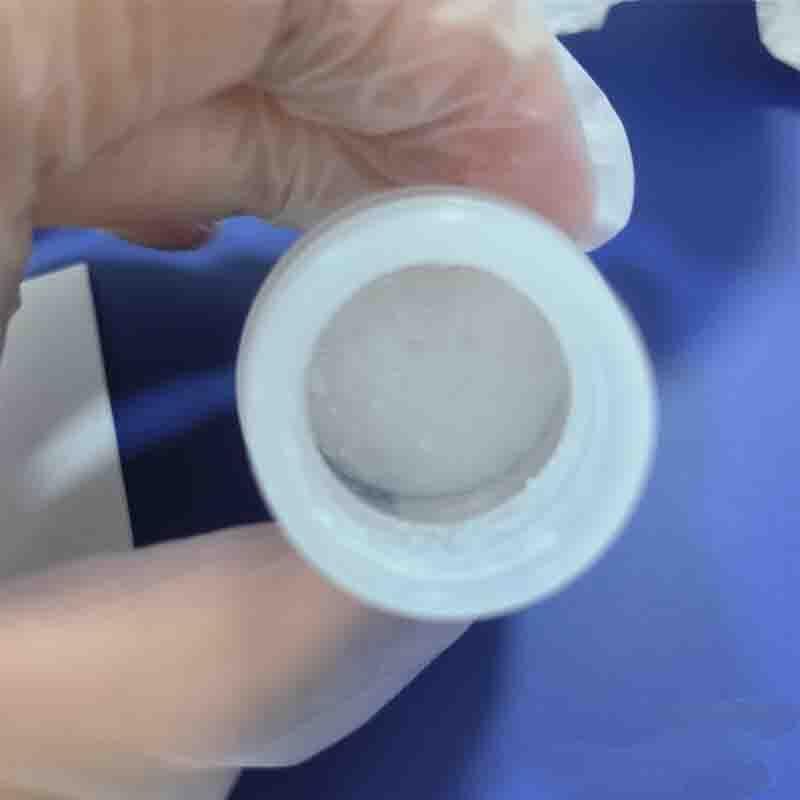-
Categories
-
Pharmaceutical Intermediates
-
Active Pharmaceutical Ingredients
-
Food Additives
- Industrial Coatings
- Agrochemicals
- Dyes and Pigments
- Surfactant
- Flavors and Fragrances
- Chemical Reagents
- Catalyst and Auxiliary
- Natural Products
- Inorganic Chemistry
-
Organic Chemistry
-
Biochemical Engineering
- Analytical Chemistry
-
Cosmetic Ingredient
- Water Treatment Chemical
-
Pharmaceutical Intermediates
Promotion
ECHEMI Mall
Wholesale
Weekly Price
Exhibition
News
-
Trade Service
For medical professionals only
Dry goods are full~
Peptic ulcer mainly refers to chronic ulcers that occur in the stomach and duodenum, namely gastric ulcer and duodenal ulcer
.
The pathogenesis of peptic ulcer is a loss of balance between the aggressive effects of gastric acid and pepsin and the defense capacity of the mucosa, and gastric acid produces self-digestion
of the mucosa.
Helicobacter pylori infection and long-term use of NSAIDs are the main causes
.
Other factors such as stress, smoking, alcohol consumption, chronic stress, and irregular eating are common triggers
for the development of peptic ulcer.
So, how to treat peptic ulcer?
Treatment of peptic ulcers
▌Treatment goals:
Removal of the cause (if there is H pylori infection, eradicate H.
pylori first; Long-term use of NSAIDs, if necessary, discontinue the drug), control symptoms, promote ulcer healing, prevent recurrence and avoid complications
.
▌Drug treatment:
1.
Antacids: neutralize gastric acid, such as aluminum hydroxide, sodium bicarbonate, aluminum magnesium carbonate, etc
.
At present, there are many composite preparations used in clinical practice, in addition to neutralizing gastric acid and relieving pain, but also have the effect of astringent and protective ulcer
surface.
2.
Inhibit gastric acid secretion drugs: proton pump inhibitors include omeprazole, lansoprazole, pantoprazole, rabeprazole, essomeprazole, iprazole, etc.
; H2 receptor antagonists include ranitidine, famotidine, etc
.
Acid suppressants reduce mucosal damage
by inhibiting the secretion of gastric acid.
3.
Gastric mucosal protector: such as colloidal pectin bismuth, misoprostol, sucraltoaluminum, tempredone, etc
.
For example, tepredone enhances mucosal resistance by affecting the mucus of the stomach, bicarbonate secretion, and mucosal blood flow
.
4.
Gastric motility drugs: such as domperidone, mosapride, itopride, etc
.
By enhancing gastrointestinal motility, gastrointestinal symptoms
are improved.
5.
Drugs for the treatment of Helicobacter pylori infection: Helicobacter pylori is an important factor in causing peptic ulcer, and the bismuth quadruple regimen is currently recommended as the primary and re-treatment of people with Helicobacter pylori infection (strongly recommended, moderate-quality evidence).
In addition to proton pump inhibitors (PPIs) and bismuth, the following antimicrobial combinations are available, including amoxicillin plus clarithromycin, amoxicillin plus levofloxacin, amoxicillin plus metronidazole, amoxicillin plus tetracycline, amoxicillin plus furazodone, tetracycline plus metronidazole, and tetracycline plus furazolidone
.
▌Precautions for joint use:
1.
Antacids (such as aluminum magnesium carbonate) and H2 receptor antagonists (such as cimetidine) are taken together, aluminum magnesium carbonate may reduce the gastrointestinal absorption of cimetidine, so it is not recommended to administer the two at the same time, and the interval should be at least 1 hour
.
Antacids (such as sodium bicarbonate) are taken with enteric-coated tablets (such as rabeprazole enteric-coated tablets), sodium bicarbonate can accelerate the dissolution of rabeprazole, and should not be used
together.
2.
Bismuth-containing drugs (such as colloidal pectin bismuth) and antacids (such as aluminum hydroxide) and acid-suppressing drugs (such as rabeprazole) will reduce the efficacy
of colloidal pectin bismuth.
3.
Gastric motility drugs (such as domperidone, mosabilide) and cytochrome P450 3A4 inhibitors (such as clarithromycin) taken together, may increase the blood concentration of domperidone and mosabilide and should not be combined
.
Taking with anticholinergics (such as belladonna, hyoscyamine) may weaken the effect of gastric motility drugs and should not be combined
.
4.
Gastric mucosal protective drugs (such as sucralfate) and acid inhibitors (such as cimetidine) are taken together, because sucralfate needs to be hydrolyzed by gastric acid to play a role, and cimetidine inhibits gastric acid secretion, and the combination may reduce
the efficacy of sucralfate.
▌Adjust diet:
Analysis of 6 common prescriptions
■Prescription 1
Raberazona enteric-coated tablets 10mg once a day taken orally on an empty stomach in the morning
Indications: gastric, duodenal ulcer, anastomotic ulcer, reflux esophagitis, Zol-Aison's syndrome
.
Drug analysis: This drug inhibits the secretion of gastric acid in patients with peptic ulcer and reduces the damage
of gastric acid to the mucous membrane.
The course of treatment for gastric ulcers, anastomotic ulcers, reflux esophagitis usually does not exceed 8 weeks, and for duodenal ulcers usually does not exceed 6 weeks
.
Adjunctively used to eradicate Helicobacter pylori infection, usually 10 mg twice a day
.
Note: It is not recommended for children, and those with liver insufficiency and the elderly should use
with caution.
■Prescription 2
Aluminum magnesium carbonate chewable tablets 1g 4 times daily Take 1-2 hours after meals, at bedtime or with an upset stomach
Indications: Stomach discomfort related to stomach acid, such as stomach pain, heartburn, acidic belching, fullness
.
Drug analysis: This drug is an antacid, which acts directly on the lesion site, can quickly and durably neutralize gastric acid, and does not absorb into the blood
.
It can also enhance the effect of
gastric mucosal protective factors.
Treatment should be maintained for at least 4 weeks
after symptoms resolve.
Note: Patients with severe renal insufficiency and myasthenia gravis are banned
.
Patients with renal insufficiency should regularly monitor serum magnesium and aluminum levels
during medication.
Long-term use can lead to constipation, loose stools, dry mouth, and lack of
appetite.
This drug can be combined with other drugs to reduce the absorption of other drugs, so the administration time with other drugs should be 1-2 hours
apart.
■Prescription 3
Colloidal Pectin Bismuth Capsules 150mg 4 times a day Take 1 hour before meals and at bedtime
Indications: peptic ulcer, especially Helicobacter pylori-associated ulcer.
Drug analysis: This drug is a gastrointestinal mucosal protective drug, after oral administration, it can form a protective film with strong affinity with ulcer surface and inflammatory surface in the stomach, isolate gastric acid, protect damaged mucosa, and stimulate gastrointestinal mucosal epithelial cells to secrete mucus and promote epithelial cell self-repair
.
4 weeks is a course of treatment
.
In addition, this drug can also kill Helicobacter pylori
.
Note: Pregnant women and renal insufficiency are banned
.
It should not be used
in large doses for a long time.
Do not take
with milk.
During the medication, it can be seen that the stool is dull and black-brown, which is a normal phenomenon, and can be turned normal
1-2 days after stopping the drug.
■Prescription 4
Rebapaide tablets 0.
1g 3 times a day Take morning, evening and bedtime
Indications: gastric ulcer
.
Drug analysis: This drug is a gastric mucosal protective drug, which has the effect of
protecting the gastric mucosa and promoting ulcer healing.
Note: Elderly patients usually have low physiological function, and adverse reactions
to the digestive system should be paid attention to when using this drug.
■Prescription 5
Mosapride citrate tablets 5mg 3 times a day before meals
Indications: Digestive symptoms due to decreased gastrointestinal motility (eg, functional dyspepsia, chronic gastritis), including heartburn, belching, nausea, vomiting, epigastric distension, epigastric pain
.
Drug analysis: this drug is a gastric motility drug, peptic ulcer patients often have abdominal distension, belching, acid reflux, acid reflux and other symptoms, this drug can improve gastrointestinal symptoms, but does not affect gastric acid secretion
.
After 2 weeks of continuous treatment, the improvement of digestive symptoms should be evaluated to decide whether to continue the drug
.
Note: Patients with gastrointestinal bleeding, intestinal obstruction or perforation are contraindicated
.
■Prescription 6
Amoxicillin capsules + clarithromycin tablets
Amoxicillin capsules 1g 2 times a day Helicobacter pylori eradication after meals
Clarithromycin tablets 500mg 2 times a day to eradicate Helicobacter pylori after meals
Indications: Helicobacter pylori infection
.
Drug analysis: Helicobacter pylori infection is the main cause of
peptic ulcer.
The infection rate of Helicobacter pylori in patients with duodenal bulb ulcer is as high as 90%~100%, and gastric ulcer is 80%~90%.
Quadruple therapy is widely used in clinical practice, that is, proton pump inhibitor plus bismuth agent, and two antibiotics are used
in combination.
Amoxicillin combined with clarithromycin is the more commonly used regimen
.
Note: Amoxicillin is a penicillin drug, which can cause anaphylactic shock, and the patient must be asked in detail about the history of drug allergy before medication
.
The conventional course of treatment for eradication of Helicobacter pylori is 14 days, and the drug cannot be stopped by itself in the middle of the process, so as not to affect the treatment effect, and the carbon 13 or carbon 14 breath test is reviewed for about one month to determine whether Helicobacter pylori has been completely cleared
.
Expert profiles
Professor Cao Xiaocang
- Chief Physician and Professor, Department of Gastroenterology, General Hospital of Tianjin Medical University, Master Tutor of Tianjin Medical University, Ph.
D.
of Peking Union Medical College and Tsinghua University Medical School, Postdoctoral Fellow of Texas State University School of Medicine, USA, Postdoctoral Visiting Scholar
of Lille University School of Medicine, France.
- Member of the Digestive Endoscopy Committee of the Inflammatory Bowel Disease Group of the Gastroenterology Branch of the Chinese Medical Association, Vice Chairman of the Youth Committee of the Behavioral Medicine Branch of the Chinese Medical Association, Member of the Clinical Epidemiology Collaboration Group of the Gastroenterology Branch of the Chinese Medical Association, Member of the Inflammatory Bowel Disease Group of the Committee of the Gastroenterology Branch of the Chinese Medical Equipment Association, Member of the Professional Committee of Inflammatory Bowel Disease of the Inflammatory Bowel Disease Professional Committee of the Proctologist Branch of the Chinese Medical Doctor Association, Member of the Inflammatory Bowel Disease Expert Committee of the Digestive Endoscopy Professional Committee of the Chinese Society of Integrative Medicine, He is a member of the Inflammatory Bowel Disease Expert Committee of Beijing Medical Award Foundation, a member of the Standing Committee of the Inflammatory Bowel Disease Alliance of Wu Jieping Medical Foundation, a member of the Standing Committee of the Intestinal Microecology Professional Committee, a member of the Standing Committee of the Stem Cell Engineering Technology Branch of the Chinese Society of Biomedical Engineering, and a vice chairman of the Inflammatory Bowel Disease Group of the Gastroenterology Branch of Tianjin Medical Association
- Research interests: biological therapy and cell therapy for autoimmune diseases of inflammatory bowel disease and digestive tract immune diseases, especially in the clinical application of mesenchymal stem cell transplantation
.
His research results have been awarded by international conferences such as the American Annual Conference of Gastroenterology and the European Union Annual Conference of Gastroenterology, and dozens of papers
have been published in SCI journals and Chinese series of journals.
Xie Dong
Clinical pharmacist of Tianjin Medical University General Hospital, clinical pharmacist of gastroenterology of the National Clinical Pharmacist Training Base, certified MTM pharmacist
of the American Pharmacists Association (APhA).
Ren Mengjiao
Clinical pharmacist of Tianjin Fifth Central Hospital
[1] Ge Junbo and Xu Yongjian, editors.
Internal Medicine 8th Edition[M].
Beijing:People's Medical Publishing House,2013:369-374.
[2] Li Jun, editor-in-chief.
Clinical Therapeutics 1st Edition[M].
Beijing:People's Medical Publishing House,2007:256-259.
[3] Helicobacter pylori Group, Chinese Society of Gastroenterology.
The sixth national consensus report on the treatment of Helicobacter pylori infection (non-eradication treatment)[J].
Chinese Journal of Digestion,2022,42(5):289-303.
)
[4] Related drug instructions (raberazona enteric-coated tablets, aluminum magnesium carbonate chewable tablets, colloidal pectin bismuth capsules, rebapide tablets, mosapride citrate tablets, amoxicillin, clarithromycin tablets).







